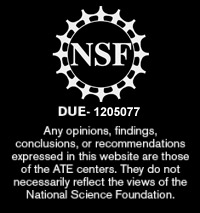RECORDED WEBINARS 2018
Thursday, April 19, 2018
Final Tips for a Competitive Proposal
Due to the latest NSF ATE Solicitation released in 2017, this webinar will act as an addendum and focus on specifics that have changed on this topic. A live Q&A will occur the last 30 to 45 minutes of the webinar.
We highly encourage that you watch the original webinar recording prior to attending this one. The original webinar was held on April 20, 2017 which covered the following information.
Best practices for finalizing and refining your proposal to get it ready for submission. This session will provide specific examples of common mistakes and pitfalls and ways to avoid them. A proposal checklist will be highlighted by several experienced Principal Investigators.
Presenters:
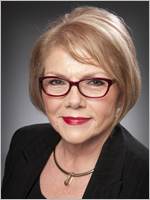 Ann Beheler
Ann Beheler Principal Investigator (PI)
National Convergence Technology Center (CTC)
Biography
Ann Beheler has been in the Information Technology industry for over 30 years, and she is now responsible for Emerging Technology grants at Collin College. In that capacity she leads the National Convergence Technology Center, a $4.4 million National Science Foundation Center of Excellence. She has also recently completed an almost $20 million DOL TAACCCT grant. A major focus of these grants is sharing resources including initiatives, curriculum, equipment, and general best practices among 46+ colleges to improve programs nationally. Beheler has experience in industry, leading her own consulting firm, teaching the first vendor-specific networking degree program in Texas, and managing IT-related corporate divisions. She has prior experience as a Vice President of Academic Affairs and as a Dean.
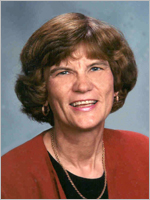 Elizabeth Teles
Elizabeth Teles Lead Program Director NSF
Biography
Dr. Teles is a Program Director of the Advanced Technological Education (ATE) Program in the Division of Undergraduate Education (DUE) and a program director for mathematics. She now works primarily in the ATE and SSTEM programs as an intermittent expert for NSF half time for approximately 130 days a year. At NSF she was Liaison for Community Colleges. She taught mathematics at Montgomery College, MD from 1969 to 1991. Dr. Teles holds a B.A. in mathematics from Winthrop College, a MAT in mathematics from Johns Hopkins University, and a Ph.D. in mathematics education from the University of Maryland. In 2008, she received the NSF Meritorious Service Award, the second highest honorary award at the Foundation, for her work on behalf of community colleges and her leadership in the ATE program.
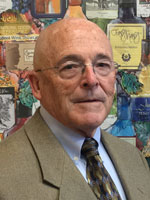 William A. Alter III, Ph.D.
William A. Alter III, Ph.D. Special Projects Coordinator
Viticulture and Enology Science and Technology Alliance (VESTA)
Biography
Bill Alter is serving as the Special Projects Coordinator for VESTA, an NSF ATE National Center that has its program office at Missouri State University. VESTA is in its 14th year of providing online courses and field experiences to address the technical workforce needs of the U.S. grape and wine industry (GWI). Bill is currently coordinating efforts to develop competency standards for inclusion of GWI jobs in the DOL’s Registered Apprenticeship program. Prior to joining MSU, he worked as a Research Director for a bioremediation company, served as a Space Grant Fellow at NASA Johnson Space Center, and was a Research Coordinator at the University of Texas at San Antonio. Bill completed a 22 year career in the USAF having served on the faculty of the Uniformed Services University of the Health Sciences, managed the Air Force’s Exploratory Research Chemical Defense Program, and trained aircrews in physiological effects of high altitude environments. His educational background includes a Ph.D. in cardiovascular physiology from the University of New Mexico.
VIEW SLIDESVIEW RECORDINGVIEW TRANSCRIPT
Thursday, March 29, 2018
Developing Stakeholder Partnerships Internally and Externally for Successful Grants
Due to the latest NSF ATE Solicitation released in 2017, this webinar will act as an addendum and focus on specifics that have changed on this topic. A live Q&A will occur the last 30 to 45 minutes of the webinar.
We highly encourage that you watch the original webinar recording prior to attending this one. The original webinar was held on March 23, 2017 which covered the following information.
In addition to developing a good idea with supporting goals and activities, it is imperative that key stakeholders both internal and external be committed to the work of the proposed grant. This session will focus on the various types of stakeholders including, but not limited to, the main institution’s and any partner institution’s administration, staff, and faculty; a strong evaluator with a detailed evaluation plan; and engaged business, industry, and community members.
Presenters:
 Elaine Johnson
Elaine Johnson PI and Executive Director
Bio-Link
Biography
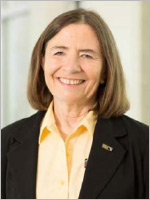 Marilyn Barger
Marilyn Barger Principal Investigator (PI) & Executive Director
Florida Advanced Technological Education Center, FLATE
Biography
Dr. Marilyn Barger is the Principal Investigator and Executive Director of FLATE, the Florida Regional Center of Excellence for Advanced Technological Education, funded by the National Science Foundation and housed at Hillsborough Community College in Tampa, Florida since 2004. She earned a B.A. in Chemistry at Agnes Scott College and both a B.S. in Engineering Science and a Ph.D. in Civil Engineering (Environmental) from the University of South Florida, where her research focused on membrane separation science and technologies for water purification. She has over 20 years of experience in developing curricula for engineering and engineering technology for elementary, middle, high school, and post-secondary institutions, including colleges of engineering. Dr. Barger serves on several national panels and advisory boards for technical programs, curriculum and workforce initiatives, including the National Association of Manufacturers Educators’ Council. She is a Fellow of the American Society of Engineering Education, a member of Tau Beta Pi and Epsilon Pi Tau honor societies. She is a charter member of both the National Academy and the University of South Florida‘s Academy of Inventors. Dr. Barger holds a licensed patent and is a licensed Professional Engineer in Florida.
 Ann Beheler
Ann Beheler Principal Investigator (PI)
National Convergence Technology Center (CTC)
Biography
Ann Beheler has been in the Information Technology industry for over 30 years, and she is now responsible for Emerging Technology grants at Collin College. In that capacity she leads the National Convergence Technology Center, a $4.4 million National Science Foundation Center of Excellence. She has also recently completed an almost $20 million DOL TAACCCT grant. A major focus of these grants is sharing resources including initiatives, curriculum, equipment, and general best practices among 46+ colleges to improve programs nationally. Beheler has experience in industry, leading her own consulting firm, teaching the first vendor-specific networking degree program in Texas, and managing IT-related corporate divisions. She has prior experience as a Vice President of Academic Affairs and as a Dean.
VIEW SLIDESVIEW RECORDINGVIEW TRANSCRIPT
Thursday, March 8, 2018
Grant Proposal Resources, Roadmaps and Timelines
Due to the latest NSF ATE Solicitation released in 2017, this webinar will act as an addendum and focus on specifics that have changed on this topic. A live Q&A will occur the last 30 to 45 minutes of the webinar.
We highly encourage that you watch the original webinar recording prior to attending this one. The original webinar was held on March 9, 2017 which covered the following information.
An insider’s look at unique characteristics of National Science Foundation (NSF) grant funding, particularly the Advanced Technological Education (ATE) Program. Guidelines and timelines will be shared along with tips to keep in mind if you have previously been funded by NSF ATE for a smaller grant and aspire to submit a proposal for a larger scope of work. Resources specific to preparing a competitive NSF ATE grant proposal will be highlighted.
Presenters:
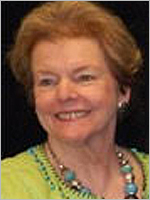 Elaine Craft
Elaine Craft Director
SC ATE Center of Excellence
Biography
Elaine Craft has served as Director of the National Science Foundation-funded South Carolina Advanced Technological (SC ATE) Center of Excellence since 1994. Currently, she is also PI for the NSF ATE Mentor-Connect: Leadership Development and Outreach project and a Co-PI for the SC ATE National Resource Center for Expanding Excellence in Technician Education. Craft is also founder and President/CEO of SCATE Inc., a 501(c)(3), not-for-profit corporation created to promote systemic change in Advanced Technological Education and help sustain the SC ATE Center of Excellence. Elaine received her B.S. in Chemical Engineering from the University of Mississippi and a MBA from the University of South Carolina.
 Elizabeth Teles
Elizabeth Teles Lead Program Director NSF
Biography
Dr. Teles is a Program Director of the Advanced Technological Education (ATE) Program in the Division of Undergraduate Education (DUE) and a program director for mathematics. She now works primarily in the ATE and SSTEM programs as an intermittent expert for NSF half time for approximately 130 days a year. At NSF she was Liaison for Community Colleges. She taught mathematics at Montgomery College, MD from 1969 to 1991. Dr. Teles holds a B.A. in mathematics from Winthrop College, a MAT in mathematics from Johns Hopkins University, and a Ph.D. in mathematics education from the University of Maryland. In 2008, she received the NSF Meritorious Service Award, the second highest honorary award at the Foundation, for her work on behalf of community colleges and her leadership in the ATE program.
VIEW SLIDES VIEW RECORDINGVIEW TRANSCRIPT
Thursday, February 15, 2018
Grants and Innovation – A Great Match
Due to the latest NSF ATE Solicitation released in 2017, this webinar will act as an addendum and focus on specifics that have changed on this topic. A live Q&A will occur the last 30 to 45 minutes of the webinar.
We highly encourage that you watch the original webinar recording prior to attending this one. The original webinar was held on February 16, 2017 which covered the following information.
Competitive grants for the NSF ATE program must be built on at least one innovative idea and goals must be well-defined and clearly explained. However, framing an innovative idea and clearly explaining goals can be difficult. Further, proposal development requires a great deal of planning and a detailed timeline. This session will focus on planning for grant proposal development and will explore how to determine whether or not an idea is innovative, what is meant by developing and explaining goals clearly and what must be considered in planning development work and the timeline for such work.
Presenters:
 Ann Beheler
Ann Beheler Principal Investigator (PI)
National Convergence Technology Center (CTC)
Biography
Ann Beheler has been in the Information Technology industry for over 30 years, and she is now responsible for Emerging Technology grants at Collin College. In that capacity she leads the National Convergence Technology Center, a $4.4 million National Science Foundation Center of Excellence. She has also recently completed an almost $20 million DOL TAACCCT grant. A major focus of these grants is sharing resources including initiatives, curriculum, equipment, and general best practices among 46+ colleges to improve programs nationally. Beheler has experience in industry, leading her own consulting firm, teaching the first vendor-specific networking degree program in Texas, and managing IT-related corporate divisions. She has prior experience as a Vice President of Academic Affairs and as a Dean.
 David Campbell
David Campbell Lead Program Officer
National Science Foundation
Biography
David Campbell received his B.S. and Ph.D. at the University of Rhode Island in biological sciences. His first position after receiving the Ph.D. was to teach coral reef ecology for the School for Field Studies in the US Virgin Islands. This was followed by a visiting assistant professor position in the Zoology Dept. at the University of New Hampshire that lasted three years. It was while at UNH that David started teaching field marine science courses for the Shoals Marine Laboratory, and he continued to do so for the next 20 summers. David then settled in at Rider University for 15 years, where he served as chair of the Biology Dept. and helped to institute the University’s marine biology and environmental science majors. David has been a Program Director in the Division of Research on Learning in Formal and Informal Settings at the National Science Foundation since 2001. He works with several programs in the Education Directorate, including Discovery Research K-12, Advanced Technology Education, Innovative Technology Experiences for Students and Teachers, and Climate Change Education Partnerships.
VIEW SLIDESVIEW RECORDINGVIEW TRANSCRIPT








